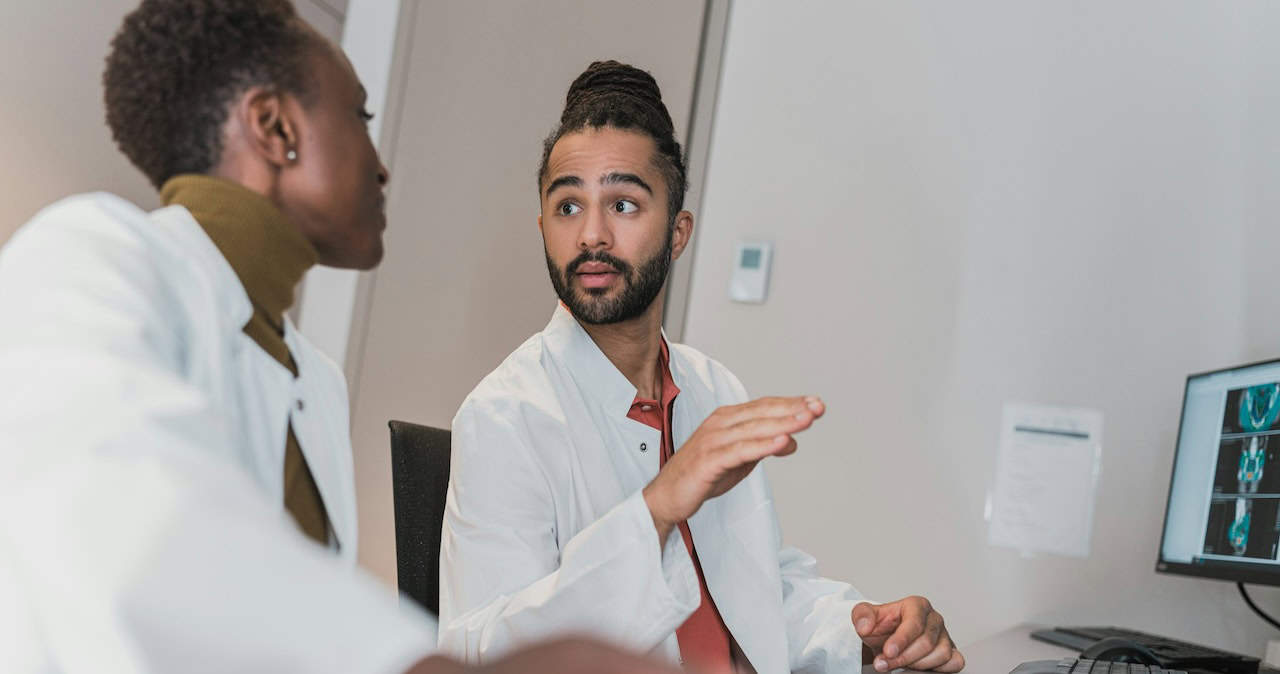How To Make The Most Of Medical Schools In Europe

Table of Contents
- How Long is a Medical Degree in Europe?
- What Other Places can UK and International Students Study a Medical Degree?
- Why Should UK and International Students Choose to Study a Medical Degree in Europe?
- What Extra Steps or Courses are Needed that can affect how long a Medical Degree is?
- How can UK and international students make the most of medical school in Europe
How Long is a Medical Degree in Europe?
An undergraduate medical programme in Europe typically takes six to seven years to complete, while a graduate programme is usually four years. Most universities have their main intake in September or October, although some may offer up to two or three intakes per year. In this case, there’s greater flexibility for prospective students. The duration and intake options can vary by country and university, so it’s essential to research specific programs when applying. By the end of the European undergraduate programs, students earn a globally-recognised Doctor of Medicine (MD) degree.
Is There a Difference Between Medical Degree Lengths in the EU and the UK?
In the UK, studying an undergraduate medical degree usually takes five to seven years, and a graduate programme typically lasts four years. UK medical schools usually have one main start date, typically in either September or October each year. In contrast, European medical programmes have similar lengths, with undergraduate courses generally lasting six to seven years and graduate programmes around four years.
Between the EU and the UK, the main difference is in the structure and clinical training requirements, which can vary by country. Also, some European universities have multiple start dates each year, offering more variety and personalisation options than UK schools.

What Other Places can UK and International Students Study a Medical Degree?
UK and international students can also pursue a medical degree in various regions around the world:
- North America (including the Caribbean): United States, Canada, Antigua, Anguilla, St. Vincent and the Grenadines, Barbados, Curaçao, Jamaica, Grenada
- Australasia: Australia, New Zealand
- Asia: Singapore, Malaysia, India
How Long is a Medical Degree Programme in North America?
In North America, undergraduate medical programmes are typically five years long, beginning with a full year of premedical studies. Caribbean graduate programmes are four years long and require students to have a science-related Bachelor’s Degree. The path to becoming a doctor in the U.S. and Canada is longer compared to Europe, as it includes a four-year undergraduate degree before starting medical school. Despite this, North American schools in the Caribbean sub-region offer five and five-and-a-half year undergraduate programmes. When compared to Europe, medical programmes are generally six to seven years long and don’t require a previous degree.
How Long does it take to Qualify for a Medical Degree in the Rest of the World?
The duration of medical programmes in popular regions with English-language options can vary due to curriculum structure, government requirements, and clinical training guidelines. In Australia and New Zealand, undergraduate programmes usually take five to six years, and graduate-entry programs are four years long. In India, medical school takes about five-and-a-half years, including a one-year internship. Lastly, in Asia, countries like Singapore and Malaysia, offer undergraduate medical pathways that last five to six years.
Medical schools in these regions typically have one main start date each year, usually in January or July, depending on the university. In contrast to Europe, the main difference is that some regions require an extra internship year. Additionally, their offerings may be undergraduate or graduate-only entry options. Consequently, programme lengths and start dates can vary depending on the region so students might want to factor this into choosing programmes.

Why Should UK and International Students Choose to Study a Medical Degree in Europe?
European medical schools provide many benefits, making them a great option for international students from the UK and other countries. One of the main advantages is the friendly and diverse atmosphere at universities, high teaching standards, and a teaching ethos of international healthcare. For students looking to study abroad, European courses for international students are taught entirely in English which keeps classes and clinical training stress-free.
What about student visas and residency permits in Europe?
Europe also has simple procedures for getting student visas and residence permits. Undeniably, this makes things much easier for students wanting to study there. The EU, and European universities in general, are welcoming to international students making it a diverse and inclusive learning environment. Even countries where English is not the official language are welcoming to international students and offer study abroad programmes taught in English.
How does the entry process in Europe benefit international students
Compared to the very competitive UK system, European medical schools usually have more places available for both undergraduate and graduate programmes, giving more chances for future doctors. Additionally, the admission process is often more open, with fewer entrance exams and an application-based criteria, which reduces stress for applicants.
Do medical school tuition fees and living costs work out better in Europe?
European medical programmes usually have lower tuition fees than those in the UK or North America, often costing 30-60% less, making them more affordable for many students. The cost of textbooks and other school-related expenses is also usually lower, which helps students keep their total costs down. In terms of clinical training, European medical schools have strong local and international infrastructure that ensures students complete diverse and intensive practical experience. This reduces study costs without compromising the priceless essential of high-quality clinical rotations and dynamic training.
Living expenses are another big advantage for students in Europe. Rent is often cheaper in many European cities compared to the UK or North America. Also, things like food, transportation, utilities, phone, internet, and entertainment usually cost less, allowing students to live well without too much financial stress. According to Numbeo, many European cities have a significantly lower cost of living compared to major cities in the UK or North America, making them more affordable for students. Specifically, this applies in medical schools in Greece, Bulgaria, Serbia, Romania, Georgia, and Armenia.
Is studying medicine in Europe worth it for international students?
Studying medicine in Europe provides a mix of high-quality education, cultural experiences, and cost-effectiveness. All in all, these are the kinds of advantages that make European medical training a great choice for both UK and international students. Equally, European medical schools offer globally-recognised qualifications, enabling graduates to pursue medical careers in various countries, including the UK. For any student aiming to work internationally, or have the option, worldwide degree recognition allows students to build a successful career wherever they want. In essence, these programmes are a logical professional and financially-savvy choice if students are hoping to practise medicine at home or abroad.
How Long are Undergraduate Medicine Courses in Europe?
Undergraduate medical courses in Europe are typically six to seven years. Entry requirements generally include completion of secondary education, often with a focus on science subjects like Biology and Chemistry. The application process usually involves successfully completing entrance exams or an interview, depending on the university’s admission requirements.
The undergraduate programme is divided into two parts:
Firstly, three years of pre-clinical study where you learn basic subjects like anatomy, physiology, and biochemistry.
Then, at least three years of clinical training, working in hospitals and medical centers. During this time, you accrue practical experience in different areas of medicine, such as internal medicine, surgery, and pediatrics.
Upon completion, students are awarded a medical qualification, such as a Doctor of Medicine (MD) or Bachelor of Medicine, Bachelor of Surgery (MBBS), which is recognised internationally. Then, graduates can pursue postgraduate training or practise medicine in their chosen country!
How Long are Graduate Medicine Courses in Europe?
Graduate medicine courses in Europe typically last four years and are designed for students who have already earned a science-related Bachelor’s Degree. Applicants need to meet the entry requirements to be offered a place including the relevant undergraduate degree, like Biomedical Science, plus completion of prerequisite courses, and successful performance in an entrance exam or interview.
Graduate medical programmes are more intense than undergraduate ones. Because students undertake basic medical modules and practical clinical modules over a shorter time, they must be prepared to apply prior academic training.
The graduate programme is divided into two parts:
To begin, the first one to two years focus on important medical science subjects. Then, the remaining two to three years comprise clinical rotations in different medical fields in real working hospitals and medical clinics.
After finishing the programme, students typically earn a global medical qualification like a Doctor of Medicine (MD) degree. This lets graduates either continue their training or start practising medicine, depending on the rules of the country they want to work in.

What Extra Steps or Courses are Needed that can affect how long a Medical Degree is?
For both undergraduate and graduate programme students, licensing requirements still vary between regions. Students must be prepared to meet these specific regulations in order to practise medicine.
European medical universities offer students a degree that is recognised worldwide. Even, students need to prepare for the extra tests or training they might have to complete in order to work as doctors internationally or in their home country.
In the UK, graduates have to sign up with the General Medical Council (GMC) before they can start working as doctors. This usually means passing the Professional and Linguistic Assessments Board (PLAB) tests, which assess the knowledge and skills necessary for safe practice in the UK. If graduates studied medicine in English and possess the necessary skills, they may have alternative pathways for registration based on their experience. depending on the GMC requirements for working in the UK.
In the U.S., medical graduates need to pass the United States Medical Licensing Examination (USMLE), a three-part exam. After passing these tests, they must also finish a residency program, which can take anywhere from three to seven years. Usually, residency lengths depend on their chosen field.
In Australia and Canada, there’s similar licensing exams in each country. For Australia, graduates take the Australian Medical Council (AMC) exams before completing a period of supervised practice.For Canada, students must pass the Medical Council of Canada Evaluating Examination (MCCEE). Additionally, there are further tests that are specific to each province required to practise medicine in that region of Canada.
In Ireland, international medical graduates need to pass the Pre-Registration Examination System (PRES). This officially lists them on the medical register. During this period, graduates can’t practise medicine in the Republic of Ireland so it adds extra time to starting a local career.

How can UK and international students make the most of medical school in Europe
Though it’s obvious, it’s important to remember that despite how long a medical degree can be, getting the most of medical school in Europe is way more than just academic success. By actively participating in various opportunities, students are preparing for the career of their dreams. Of course students can enrich their educational experience, gain valuable skills, and create lifelong memories. Even so, these opportunities can be overlooked in the rush to get it over with as quickly as possible. Here’s six essential ways to maximise your time in medical school.
Six essential ways to make the most of medical school in Europe
- Apply for Internships:
Completing internships while you’re studying medicine can give you really useful, practical experience that deepens your medical practice understanding. A lot of medical schools have links with nearby hospitals and clinics, which makes it simpler to find internship opportunities. These internships let you use what you’ve learned in class in real situations, improve your practical skills, and create a professional record of your work. Also, they can help you discover different medical fields, figure out your career aims, and grow your connections in the medical world.
- University Offers for International Clinical Opportunities:
Many European medical schools provide extra clinical training or rotations in different countries. It’s a priceless chance for you to learn in various settings with university support. Taking these opportunities helps you expand your medical knowledge and see how different healthcare systems work. Participating in international clinical training improves your ability to adapt and understand different cultures, which is very important in today’s global healthcare world. Make the most of these chances to get the best out of your medical education.
- Build Professional Networks Through On-Campus Extracurricular Culture:
Getting involved in extracurricular activities on campus is a good way to make social and professional connections while having a blast. By joining groups like medical clubs, student organisations, or helping with local health projects, you’ll meet other students and teachers who have similar interests. These connections are the enriching relationships you can only build through quality time spent together. Moreover, they’re your community that you can turn to for advice, support, and professional collaborations. For instance, you’ll have buddies to work with on research or practical projects. Being part of campus social groups is guaranteed to help you feel connected to your peers, making your time in medical school more enjoyable and meaningful.
- Learn Local Languages:
Learning the local language of the country while studying has countless advantages beyond medical school. It allows for better communication with patients during clinical rotations and fosters deeper connections with local students and communities. Being proficient in the language can also improve your understanding of cultural nuances in patient care. Many universities offer language courses specifically for medical students, making it easier to integrate language learning into your busy schedule.
- Try an Exchange Program Like Erasmus+:
Participating in an exchange program such as Erasmus+ can broaden your horizons and provide unique educational experiences. In particular, the Erasmus+ EU initiative lets students study in another European country while continuing their university studies. It also gives you the chance to live in a new culture, diversify healthcare system exposure, and meet students from all over the world. The skills and experiences gained from exchanges are really valuable for medical students. In addition to the primary programme of study, these experiences help build transferable skills, such as adaptability, communication, and cultural competence, which are invaluable in today’s diverse healthcare environment.
- Explore the Country and the Continent:
Studying in Europe offers the perfect opportunity to travel and explore various countries and cultures. Take advantage of weekends and breaks to visit nearby cities and regions, enriching your personal experience and broadening your worldview. Traveling can also provide insight into different healthcare systems and practices. Both travel for fun and travel for study enhances your understanding of global medicine. Whether it’s a weekend trip or a longer vacation, exploring Europe can help you create lasting memories and a deeper skills set from your time studying abroad.
Conclusion
No matter how long medical school lasts, it’s a unique opportunity to embrace learning and personal growth before you decide on your specific career path in medicine. The things you learn, are very important and help you become a better healthcare worker. Studying medicine in Europe gives you a wide range of experiences that make this journey really special. If you’re a student still trying to decide which international program is best for you, feel free to contact SME. We can guide you through your choices and help you find the right programme in Europe that matches your career goals after finishing school. Medical school is only the beginning of a lifelong journey of working as a doctor – get on track to your dreams today!



















